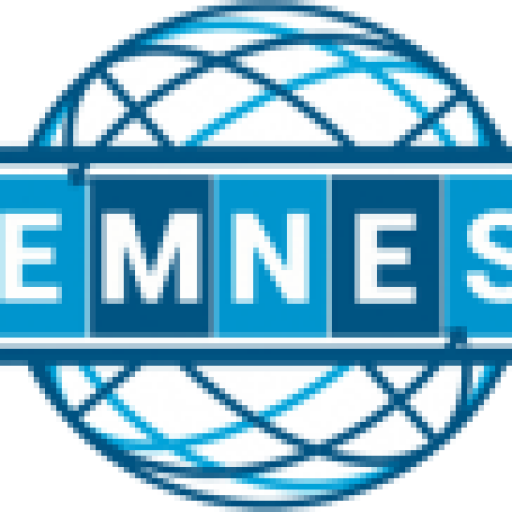Economic Integration of Refugees in the Countries of First Asylum ─ Mission possible?
Place du Congrès 1, Brussels, Belgium
Foreword
According to recent estimates by the UN, in 2015, about 7.6 million foreigners resided in the Southern Mediterranean countries: Morocco, Tunisia, Algeria, Libya, Egypt, Jordan, Syria, and Lebanon. Among them, 3.4 million were Palestinians, more than 2 million Syrians, about 500,000 Iraqis. In addition, the region hosts thousands of immigrants from unstable African countries, such as Somalia, Sudan, Western Sahara and Eritrea. Improving economic opportunities for both the local population and immigrants in these countries has become part of the EU Agenda on Migration as a measure to address the root causes of irregular migration from the region.
Open questions, however, prevail: Are developing countries in reality willing and able to accommodate large inflows of migrants in their labour markets? How do countries currently manage labour market integration of refugees? What role can cooperation with the EU play? Among others, these questions were discussed during a one-day workshop “Economic Integration of Refugees in the Countries of First Asylum ─ Mission possible?”, co-organised by the Economic Policy research unit at CEPS, partner institutes from Euro-Mediterranean Network for Economic Studies (EMNES) and the Mercator Dialogue on Asylum and Migration (MEDAM).
The workshop brought together researchers with expertise in the region’s economic development, the economics of migration and development, as well as legal experts.
Session I
Structural economic problems in the Southern Mediterranean hinder the region’s growth and, as a consequence, lead to poor economic opportunities for the local population. Thus, labour market integration of foreigners represents a difficult task.
Rym Ayadi (Professor at HEC Montreal and Euro-Mediterranean University (Emuni), and scientific coordinator of EMNES), Jamel Trabelsi (IHEC Cartage and BETA University of Strasbourg and EMNES) and Elena Sanchez-Montijano (CIDOB) emphasised the prevalence of high unemployment rates, particularly among youth, and the high level of skill mismatch in the region.
Ilyas Azzioui (National Center for Scientific and Technical Research in Rabat and EMNES) offered one possible solution: to foster entrepreneurship in the region by mobilising the diaspora.
Session II
Anda David (Agence française de développement AFD) and Lewis Turner (SOAS, University of London) spoke about the consequences of the large inflows of Syrian refugees in Lebanon and Jordan.
Ms David highlighted the role of foreign aid (directed at investment in the host economies) in mitigating the negative economic effects of falling exports and rising unemployment due to the Syrian crisis.
Mr Turner discussed the shortcomings of the recent ‘Jordan Compact’, which was supposed to stimulate economic integration of Syrian refugees. While the commitment expressed by many stakeholders could be considered a policy success, it has proven hard to reconcile the current rigid zonal development model and sectoral restrictions with the real demand for labour and supply of skills by Syrian refugees.
Session III
Mauro Lanati (European University Institute and MEDAM), Leonhard Den Hertog and Marco Stefan (Justice and Home Affairs, CEPS) illustrated possible effects of the EU cooperation schemes in the area of migration.
Mr Lanati presented empirical evidence for a negative relationship between aggregate aid and emigration rates from developing countries. While aid for ‘technical cooperation’ seems to reduce emigration by creating jobs and raising income, this relationship does not hold for humanitarian aid.
Mr Den Hertog and Mr Stefan provided a legal perspective on EU cooperation with third countries and its potential and limitations by presenting a case study they conducted of the EU-Morocco Mobility Partnership.
Panel Discussion
A panel discussion involving Rym Ayadi (HEC Montreal, Emuni, EMNES), Dagmar Schineanu (former advisor on migration and development for the Italian Development Cooperation, 1995-2016), Tobias Stoehr (Kiel Institute for World Economy, MEDAM), and Matthias Luecke (Professor at Kiel Institute for World Economy and scientific co-director of MEDAM) concluded the workshop.
Conclusions
Three ‘take-away’ messages could summarise the diverse contributions heard throughout the day.
First, in contrast to developed countries, which currently face the challenge of integrating refugees into their labour markets, the relevant question for developing countries is how they can improve the economic conditions and the functioning of their labour markets to create opportunities for both the local population and the immigrants. In this respect, EU cooperation schemes aimed at job creation (through direct investment, better access to finance for local entrepreneurs and trade liberalisation) could be beneficial.
Second, inadequate skills represent an obstacle to economic development of the region. The Southern Mediterranean countries would benefit from investing in human capital – another possible focus for cooperation with the EU. To ensure the effective integration of refugees into the labour market, it is important that they also have access to targeted educational programmes.
A third take-away from the workshop is the acknowledgement that integration policies in developing countries, as is also the case in developed countries, are subject to an inherent conflict of interest: the efficiency of employing refugees vs. the fear of attracting more long-term immigrants. This conflict must be taken into account in designing partnership frameworks with third countries.







